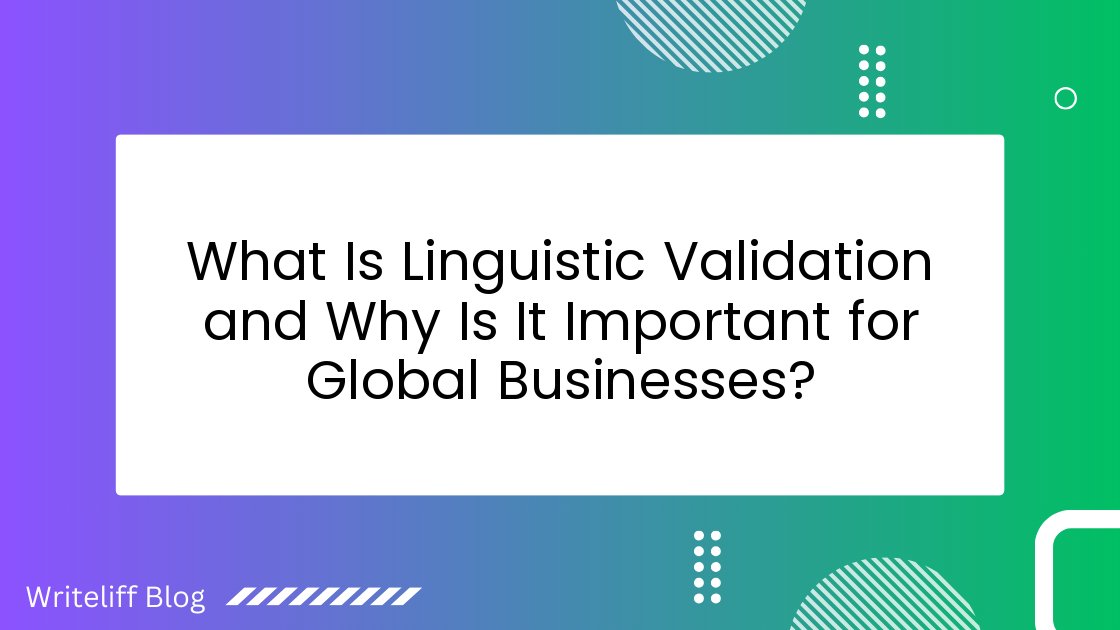What Is Linguistic Validation and Why Is It Important for Global Businesses?

As a global business owner, I understand the importance of clear communication across different languages and cultures. One of the key aspects of ensuring accurate communication is through linguistic validation. In this blog post, I will discuss what linguistic validation is, why it is important for global businesses, and how a professional translation service can help you achieve it. Let’s dive in!
Understanding Linguistic Validation
Linguistic validation is a process that ensures the translated content is not only accurate but also culturally appropriate and easily understood by the target audience. This process goes beyond simple translation and involves several steps, including:
- Forward translation: Translating the source content into the target language by a native speaker of the target language.
- Back translation: Translating the forward-translated content back into the source language by a different translator to check for consistency and accuracy.
- Harmonization: Comparing the back-translated content with the original source content to identify and resolve any discrepancies.
- Cognitive debriefing: Testing the translated content with a sample of the target audience to ensure it is easily understood and culturally appropriate.
Why Linguistic Validation Matters for Global Businesses
There are several reasons why linguistic validation is crucial for global businesses:
1. Ensuring Accurate Communication
When expanding into new markets, it is essential to communicate your message accurately to avoid misunderstandings and potential legal issues. Linguistic validation helps ensure that your translated content is not only accurate but also easily understood by your target audience.
2. Building Trust with Your Audience
Providing content that is culturally appropriate and easily understood by your target audience helps build trust and credibility. This, in turn, can lead to increased customer loyalty and a stronger brand reputation.
3. Compliance with Industry Regulations
In certain industries, such as healthcare and pharmaceuticals, linguistic validation is a regulatory requirement to ensure that patient-reported outcome measures (PROMs) and other clinical assessment tools are accurately translated and culturally adapted.
Choosing a Professional Translation Service for Linguistic Validation
When selecting a professional translation service for linguistic validation, consider the following factors:
- Experience: Choose a translation service with a proven track record in your industry and experience in linguistic validation.
- Qualified Translators: Ensure that the translation service employs native speakers of the target language who are also subject matter experts in your field.
- Quality Assurance Processes: Look for a translation service that follows a rigorous quality assurance process, including forward and back translation, harmonization, and cognitive debriefing.
Conclusion
In conclusion, linguistic validation is a critical aspect of ensuring accurate communication for global businesses. By working with a professional translation service that specializes in linguistic validation, you can ensure that your translated content is accurate, culturally appropriate, and easily understood by your target audience. This will not only help you build trust with your audience but also comply with industry regulations and avoid potential legal issues.
